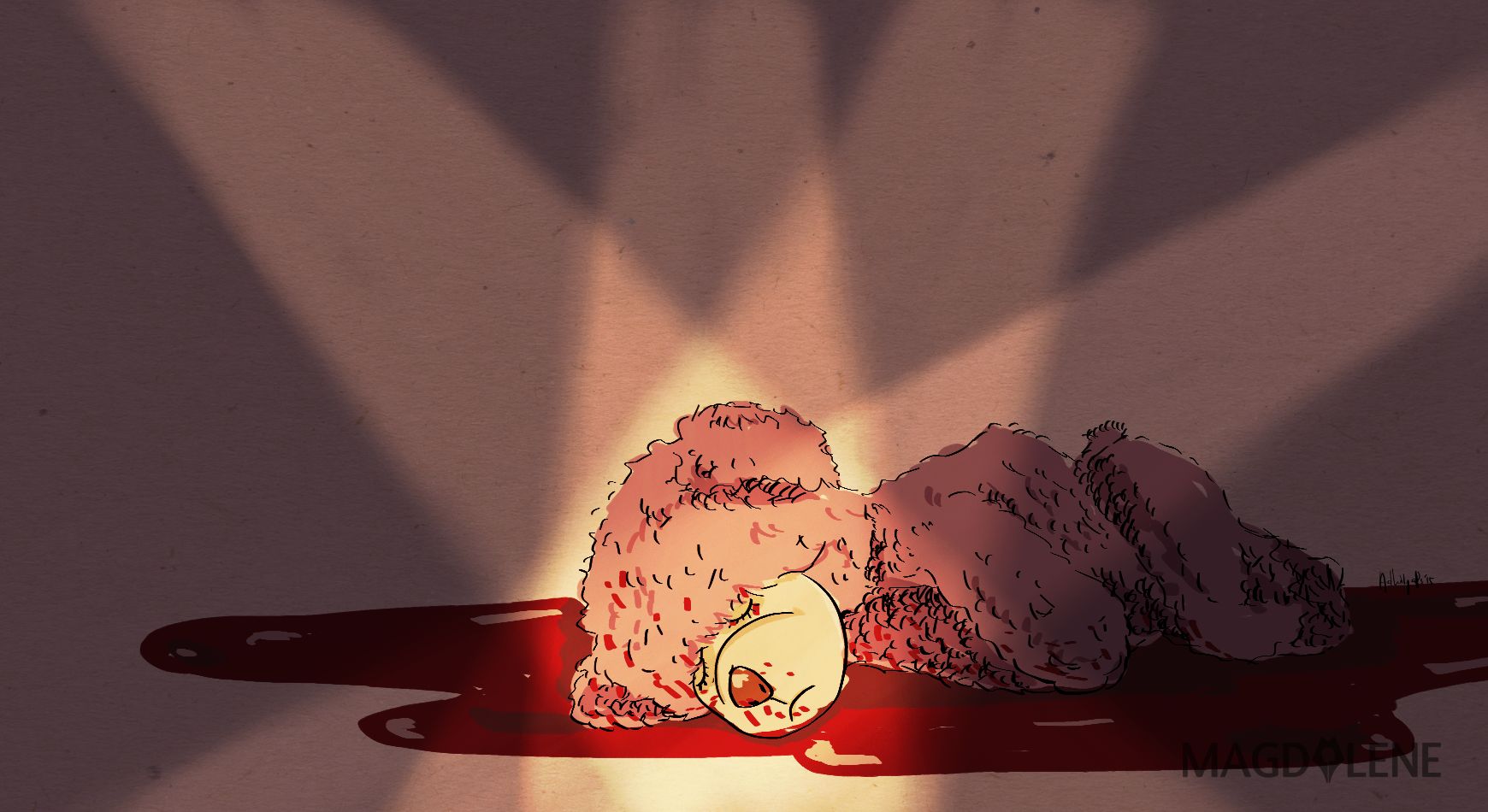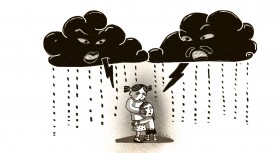Engeline’s case shocked the public because it involved a little girl who was neglected by her family and was killed brutally in her adoptive mother’s own backyard. Her case raised questions about the roles of parents in the family. The family is the core unit that shapes human characters as social agents in a society; it is a platform to transfer social norms; and it is the source of love for most of individuals. Unfortunately, studies have shown that violence often occurs inside social institutions like family and school, with the perpetrators being the people closest to the children.
Data from Komunikasi Indonesia Indicator (I2), a company focusing on media intelligence, data analysis and strategic review, shows that the biggest perpetrators of violence against children are parents, followed by teachers. Based on media reports of cases of violence against children, there were 4,308 cases of abuse perpetrated by parents and 2,312 by teachers in 2014. In the first half of this year alone, there were 3,235 media reports of violence against children perpetrated by parents and 709 by teachers. Based on Indonesian media reports, I2 found that poverty and economic pressure were the leading factors in violence against children that occurred in 2013 to 2015.
The data corresponds with UNICEF’s findings in 2014 that violence against children – consisting of physical, sexual and psychological abuse – are often perpetrated by family members, teachers, neighbors, strangers and other children.
The I2 report published on June 22 this year and entitled “Children in the Black Sea of Violence” found that over the last month alone, Engeline’s case dominated the media, making up more than a quarter of all media coverage this year.
Reports on high-profile child abuse cases like that of Engeline can have both negative and positive impacts. On the upside, media can educate the public through their coverage of cases of child neglect and violence against children as a way to advocate for behavioral and social change. With a high interest in the story, the media can provide content that is informative and educational.
Unfortunately, most publications treat the issue as a commodity to boost their readership/audience. The commodification of empathy by the media in cases like Engeline’s has become a mode of capitalization. Commoditized empathy used for ratings has led the media to play with the public’s emotions by making assumptions. Assumptions distort the facts of the case, shaping public opinion in ways that could later complicate the investigative and legal process. By doing this, the media turn the public into passive consumers of reports with facts that are distorted or blown out of proportion.
Instead of merely stirring the public’s emotions – to draw profit from public sympathy – the media should aim to drive social change. The media should return to its function as the source of information, whether investigative or educational. Without denying the importance of its commercial aspect, it should uphold objectivity in its reporting. Distorting issues and reporting assumptions do not educate the public and they create legal biases.
As consumers of information, we should always be wary of the assumptions and distortions in media reports made in the name of commercial logic by taking an objective distance from the information. Furthermore, our sense of empathy towards Engeline, the tragic victim of child abuse, should also open our eyes to the reality that there are still many other children out there who are suffering the same fate as her.
Fatimah Suganda is a researcher at the Institute for Strengthening Transition Society Studies (In-Trans Institute) in Malang, East Java.








Comments